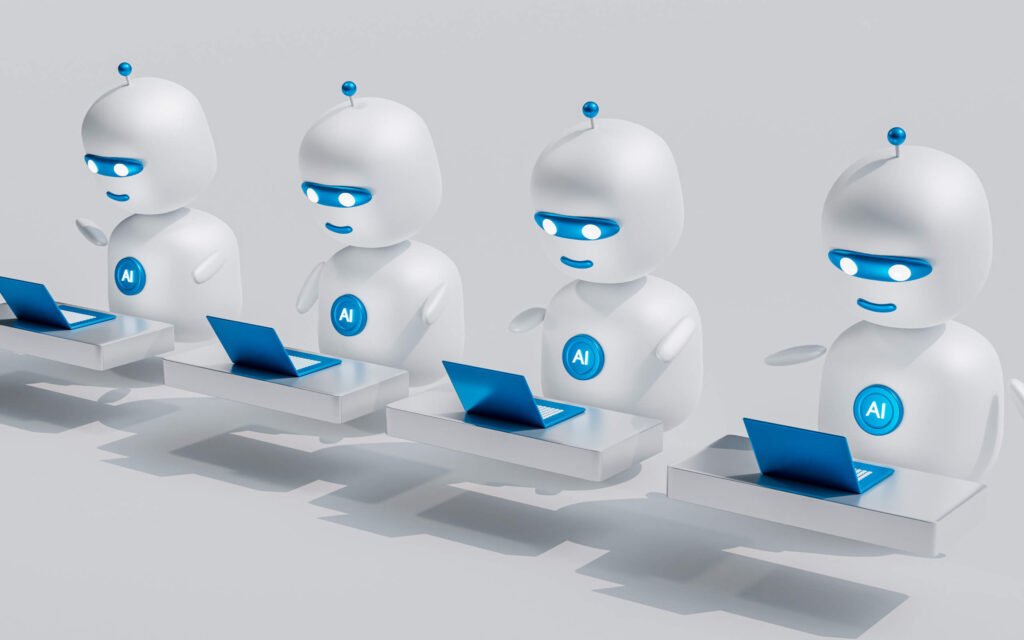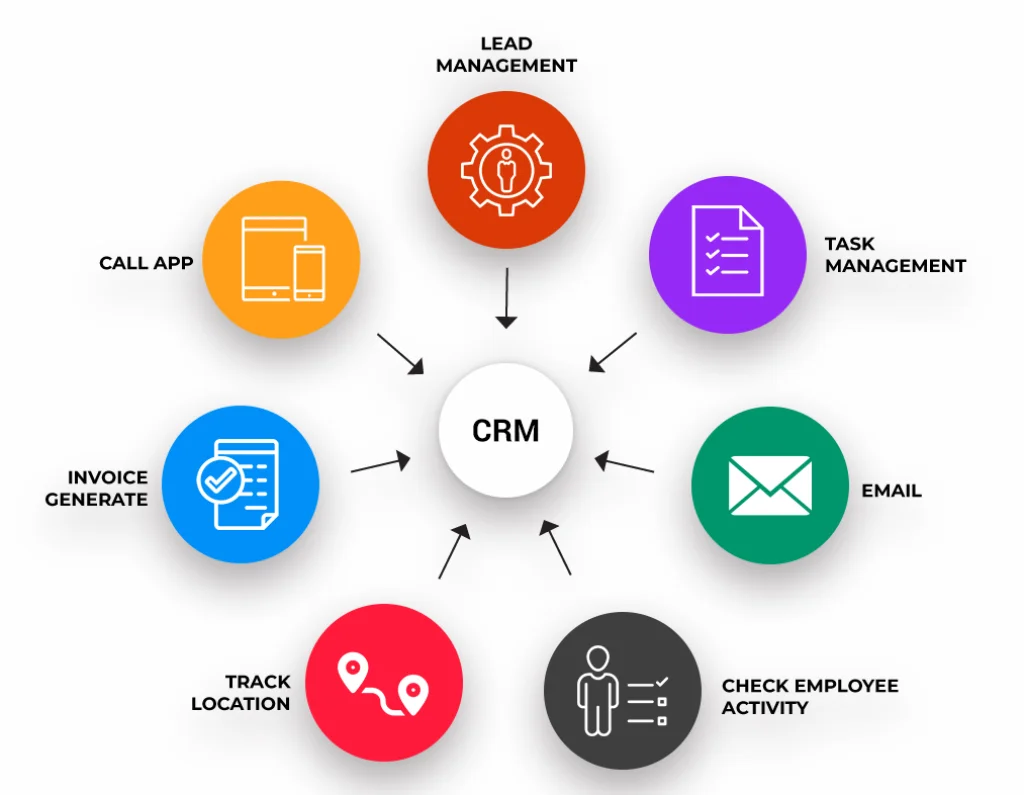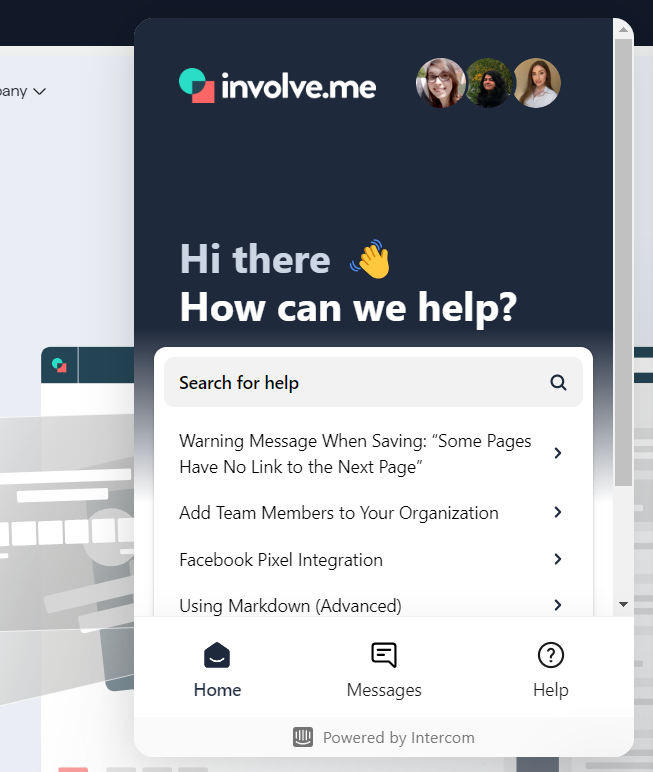New developments in artificial intelligence (AI) are streamlining customer targeting for businesses. By pinpointing specific ideal audiences, AI technology empowers companies to refine their marketing strategies with laser focus.
Sharper customer targeting through artificial intelligence leads to better product-market fit, potentially boosting sales and solidifying customer satisfaction, showcasing the evolving and practical role of artificial intelligence in marketing.
A recent X (formerly Twitter) post highlighted M1-Project, an AI tool designed to identify these ideal customers, and here is how it works.
Tailoring customer targeting
After signing up on the M1-Project website, users need to provide their website URL and answer a series of multiple-choice questions.
This information helps M1-Project’s AI tool analyze the business and target audience, laying the foundation for tailored recommendations.
Artificial Intelligence delves deep into website and user input
Building on the initial information the user provide, M1-Project’s AI tool commences its analysis. It delves deeply into the website’s content, analyzing text, images, and other elements to understand the essence of each product or service.
Simultaneously, this artificial intelligence considers the answers from multiple-choice questions, gaining insights into the target audience and business objectives.
This combined analysis translates into a series of automatically generated outputs: a clear description of theoffering, identification of the needs it fulfills, and the problems it solves for the company’s ideal customers.
Importantly, user retains complete control over this information. The system allows to review and edit any of these automatically generated outputs to ensure they accurately reflect each business and resonate with specific target audiences.
AI tool generates 5 ready-made market segments
To achieve optimal marketing focus, a two-step process utilizing artificial intelligence can be used.
First, identify potential customer segments through data analysis. Artificial intelligence can analyze existing customer data or broader market information to segment potential buyers based on shared characteristics. This can include demographics, behaviors, or needs.
Second, for each segment, detailed buyer personas can be created. These in-depth profiles represent ideal customers within each segment, outlining their goals, challenges, and preferred communication channels.
By analyzing these buyer personas, businesses can then select the market segments and corresponding personas that best align with their product or service.
This targeted approach provides a clear picture of who to reach and how to tailor messaging for maximum impact.
Here are 5 ready-made market segments an artificial intelligence tool could generate, considering current trends and potential applications:
- Personalized Artificial Intelligence Assistants for Seniors:
- Leverage voice recognition and natural language processing to create user-friendly virtual companions for elderly individuals.
- Features could include medication reminders, health monitoring assistance, appointment scheduling, and social connection facilitation.
- Hyper-Targeted Content Creation :
- Utilize artificial intelligence to generate customized marketing materials, e-learning modules, or social media content tailored to specific demographics or user preferences.
- This could revolutionize targeted advertising and create more engaging educational experiences.
- Artificial Intelligence-powered Design Optimization for Sustainable Products:
- Develop artificial intelligence tools that analyze product designs and suggest modifications for increased sustainability.
- This might involve using AI to identify opportunities for material optimization, reduced energy consumption during manufacturing, or improved end-of-life recyclability.
- AI-driven Cybersecurity Threat Detection and Prevention:
- Create artificial intelligence systems that can analyze network traffic, user behavior, and emerging threats to proactively identify and prevent cyberattacks.
- This could involve anomaly detection, real-time threat analysis, and automated response mechanisms.
- Generative Artificial Intelligence for Personalized Mental Health Support:
- Develop AI-powered applications that offer emotional support, self-guided therapy exercises, and mood tracking tools tailored to individual needs.
- This is a sensitive area requiring careful development with ethical considerations at the forefront, but it has the potential to provide accessible mental health support to a wider population.
These are just a few examples, and the possibilities are constantly expanding. Artificial intelligence tools can analyze vast amounts of data to identify emerging trends and market needs, generating even more specific target markets in the future.
Sharper aim, human touch
In conclusion, artificial intelligence tools like M1-Project demonstrate the growing power of artificial intelligence in marketing.
They help businesses target customers better and create detailed buyer profiles. This means companies can use data to make smarter marketing decisions, leading to more sales and happier customers.
However, while artificial intelligence helps identify the target audience and data guides the path, it remains a tool in the marketer’s arsenal, not a replacement for human intuition.
Why Integrate AI into Your Customer Service?
The reality is that AI has become part of everyday business operations today. The chances are that your competition is already boosting its customer service performance with artificial intelligence. You don’t want to miss out or be late for the benefits that AI can bring. Let’s explore the benefits of artificial intelligence in handling common customer issues.
Benefits of Artificial Intelligence in Customer Service
Integrating artificial intelligence into customer service operations brings you a host of advantages. You’re empowered to boost customer support experience, reduce repetitive tasks, improve your customer journey, and streamline your processes.
Here are some specific benefits offered by the top artificial intelligence customer service tools:
- Improved response times: Use artificial intelligence with your customer support software to swiftly analyze and respond to customer inquiries, reducing waiting times.
- 24/7 availability: Offer round-the-clock support and ensure assistance is available whenever customers need it, regardless of time zones.
- Cost efficiency: AI automation will minimize the need for extensive human intervention and resources. This saves costs in customer service and business operations.
- Greater personalization: Artificial intelligence algorithms analyze customer data to tailor interactions, offering personalized solutions and recommendations.
- Increased scalability: You can handle a large volume of customer inquiries simultaneously without losing out on quality or personalization. You’ll scale your support operations seamlessly.
- Real-time actionable insights: Artificial intelligence analytics and intelligence will provide your business with valuable real-time data so you can improve service delivery.
- Multilingual support: Now, support people from around the globe in their local language. This machine learning models can support communication with customers in their preferred language, breaking down language barriers.

Challenges of Implementing AI in Customer Service
Integrating artificial intelligence into customer service doesn’t come without its challenges. There are many hurdles that impact how well you integrate artificial intelligence into your interactions with customers. Some of them are:
- Initial investment into this technology and infrastructure. This can be a barrier for small to medium-sized businesses with limited budgets.
- Steep learning curve involved in understanding and effectively deploying artificial intelligence solutions.
- Ensuring your AI system operates smoothly alongside human customer service agents needs comprehensive training and ongoing support. Not to mention, you have to overcome resistance – all of which can be time-consuming and costly.
- Depersonalization is another issue. While this excels in handling routine inquiries, it may struggle with complex or sensitive issues that require human empathy and understanding. This limitation underscores the need for human customer service agents to blend technological efficiency with human warmth and intuition.
- Data privacy and security are also outstanding challenges to consider. You must navigate managing customer data, adhering to privacy laws, and ensuring that artificial intelligence-driven systems are not susceptible to misuse.

Identifying these challenges requires thoughtful planning, a clear strategy, and a commitment for continuous improvements. Let’s look into how you can integrate AI with customer service tools to drive exceptional customer care.
9 Ways to Integrate AI into Your Customer Service
Now that we’ve explored the benefits and challenges of integrating artificial intelligence into customer service, it’s time to examine practical strategies to reap these advantages.
1. Use Artificial Intelligence Forms to Gather Customer Feedback
One key way to incorporate AI into your customer service toolkit is by using Artificial Intelligence-powered forms.
Unlike traditional forms, artificial intelligence forms can generate responses based on the information a customer or user provides in form fields. Using artificial intelligence forms will lead to a more interactive and personalized experience to drive better customer engagement.
2. Leverage Artificial Intelligence with CRMs
Customer relationship management tools (CRMs) are built to make tracking customer interactions easier. They already enable automation and personalization to a high degree by helping you organize your contacts, customer information, and the many details your team needs to offer personalized services.

However, this technology can significantly boost your customer service agents’ productivity and get the best out of your CRM.
For example, you could integrate your CRM with artificial intelligence to automatically populate account details with new and accurate information based on emails, call transcripts, and other sources. This removes one of the most tedious aspects of working with a CRM – adding data manually for hundreds of thousands of clients and customers.
AI with CRMs also enables learning as it can process millions of data points to extract patterns, trends, and relevant information to improve your service experience.
Use artificial intelligence and track interactions with customers at a scale like never before. Your team will be empowered to focus on critical tasks instead of dealing with repetitive and common customer issues.
3. Implement AI Chatbots for Instant Support
Artificial intelligence chatbots are an increasingly popular solution for handling routine customer inquiries instantly.
These are virtual agents that use artificial intelligence to respond to customer inquiries efficiently.

They are capable of providing quick and accurate solutions that answer customer queries quickly, reduce customer wait times, and collect and analyze data from interactions.
You can use these artificial intelligence chatbot assistants to handle tedious and repetitive tasks that waste your agents’ valuable time. They also provide insights into customer behavior and preferences as they work with data.
And what happens when the chatbot can’t handle an issue? It can redirect customers to the right people in your business. This artificial intelligence can automate ticket routing, assignment, and even carry out lead scoring to drive customers to your sales teams. Many artificial intelligence-powered bots learn from past interactions and can escalate complex issues to the right agent, ensuring efficient problem-solving.
4. Automating Processes with Artificial Intelligence
Integrating artificial intelligence automation into routine processes such as order processing, appointment scheduling, or account management allows businesses to streamline operations and free up their human agents’ time for more complex issues. By automating these tasks, businesses can improve efficiency and reduce response times, leading to greater customer satisfaction.
5. Improve Knowledge Bases
Knowledge bases are an essential tool for customer service teams. They contain information about products, services, policies, and troubleshooting guides for products and services.
Customers can use them as self-service options and get information without human interaction. Knowledge bases also act as resources that help agents provide useful material to share with customers when needed.
These resources are typically static, but some knowledge base platforms integrate machine learning to create interactive experiences. For example, an AI assistant could answer a question and extract the exact content a customer needs from the knowledge base.
Even more useful is an AI-integrated knowledge base that self-populates or builds based on other sources of information from your business, including your blog content, customer emails, reviews, and so on. The kind of offerings you get depends on the tools your team uses. So, it’s necessary to do in-depth research to find a platform that works best for you.
6. Personalize Customer Interactions with AI
Artificial intelligence can help you scale your personalization of customer interactions by analyzing customer data.
No need for your customer agents to manually seek, read, and process information to provide better services. Artificial intelligence can extract relevant information and even deliver tailored messages and product recommendations when connecting your artificial intelligence-powered tools to email marketing platforms or help desk.
7. Use Predictive Analytics for Proactive Support
Predictive analytics is all about proactively addressing potential customer issues before they escalate. And artificial intelligence makes it possible to find patterns in your historical data indicating problems that will arise even before they appear.
This artificial intelligence can identify patterns and predict likely problems, allowing companies to proactively reach out with solutions or offers. For example, AI might detect that companies with over 100 employees using a standard license of your software will soon run into issues.
To avoid these issues, you could proactively contact them with a discount code to upgrade to your next software tier. Best of all, you can do this automatically without personally managing or monitoring each outreach effort.
Such an approach not only helps human agents boost customer satisfaction but also reduces the volume of inbound support requests.
8. Train Customer Service Agents with Artificial Intelligence
This artificial intelligence can also play a pivotal role in training and supporting customer service agents.
It can analyze vast amounts of customer interaction data and identify both best practices and common pitfalls in customer service. This information can be used to create targeted training programs, helping agents improve their communication skills, product knowledge, and problem-solving abilities.
Artificial intelligence-powered coaching tools can offer real-time feedback and advice to agents during live customer interactions, enhancing the quality of service delivered.
9. Create Content
We left the most obvious and common usage of this in customer service for last. You can use this to generate content in a flash!
Driving customer engagement involves keeping them informed and updated. This tools integrated with your customer support platform can automatically generate useful content for your email interactions, chat messages, social media updates, and even for internal communication uses. Artificial intelligence can generate privacy policies, email subject lines and more to support all business operations.
Today, most tools have artificial intelligence content generation capabilities integrated into them. Your agents shouldn’t have any problems handling common queries with artificial intelligence-generated materials.
Best Practices for Incorporating AI into Customer Support
Let’s explore how to use the potential of artificial intelligence by following best practices:
- Train your team: Ensure that your customer support team is well in using artificial intelligence tools. This includes understanding how artificial intelligence works, how to interpret its insights, and how to intervene when necessary.
- Focus on quality data: This systems learn and improve from the data they process. Ensure your Artificial Intelligence tools have access to high-quality, relevant data to train on to provide accurate and efficient customer support.
- Prioritize security: When integrating artificial intelligence into your customer support, it’s crucial to maintain customer privacy and data security. Ensure that your artificial intelligence tools comply with all relevant regulations and ethical standards.
- Monitor and update regularly: Artificial intelligence tools and algorithms are not set-and-forget. Regular monitoring and updates are necessary to maintain their effectiveness and to adapt to changing customer needs and business goals.
- Balance AI and human support: While artificial intelligence can handle routine queries efficiently, complex or sensitive issues may require a human touch. Ensure there’s a seamless handoff process between artificial intelligence and human agents when necessary.
By following a few best practices, you’ll start off on the right foot and integrate artificial intelligence with your customer service workflows effectively.
Let Artificial Intelligence Scale Your Customer Support
We’ve covered the key information you should know about leveraging and integrating artificial intelligence with customer services. Follow the tips here to provide exceptional customer care and use this intelligence to supercharge your engagement efforts. One last tip: successfully integrating artificial intelligence with customer service depends on the tools you use.
Disclaimer ||
The Information provided on this website article does not constitute investment advice ,financial advice,trading advice,or any other sort of advice and you should not treat any of the website’s content as such.
Always do your own research! DYOR NFA
Coin Data Cap does not recommend that any cryptocurrency should be bought, sold or held by you, Do Conduct your own due diligence and consult your financial adviser before making any investment decisions!



